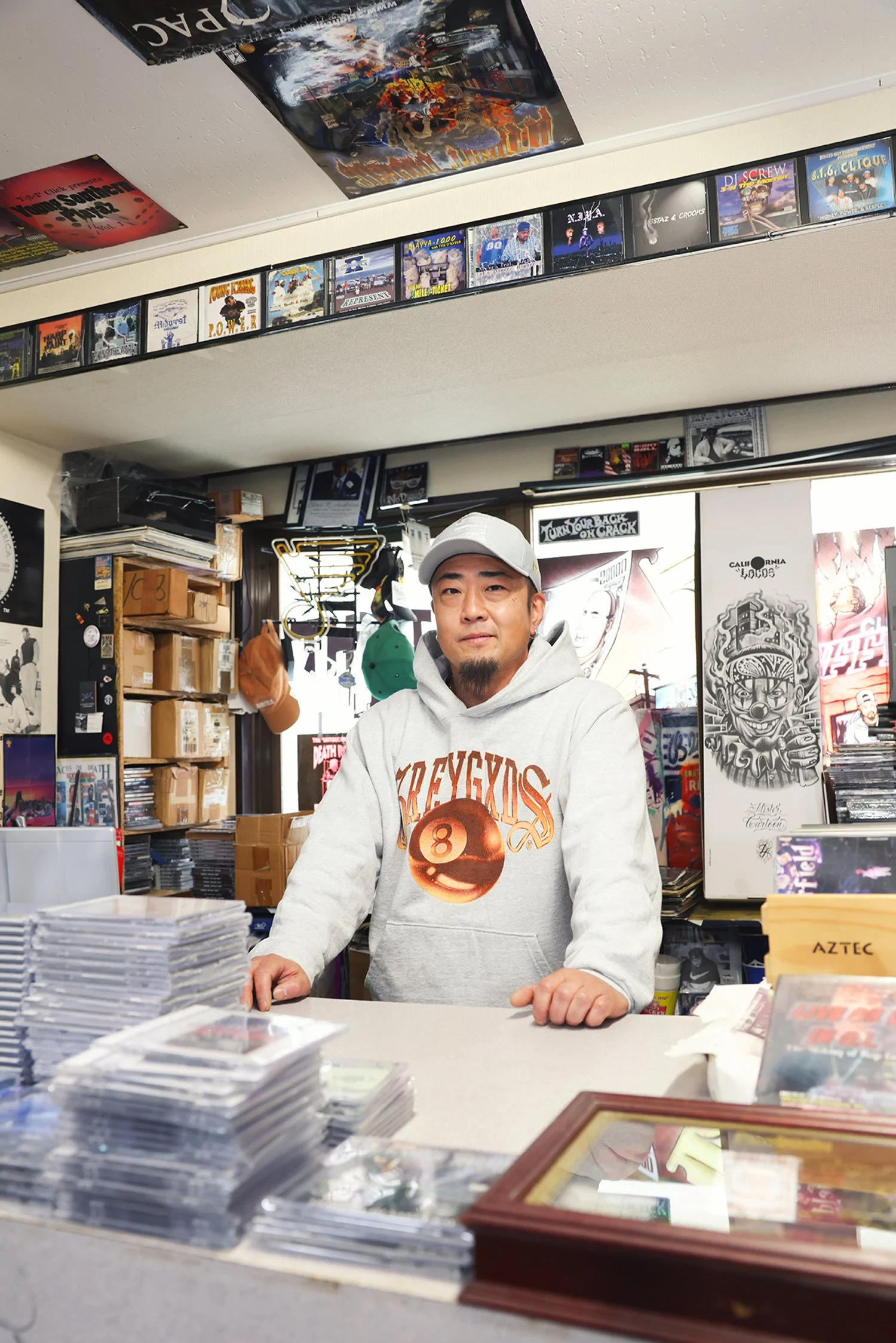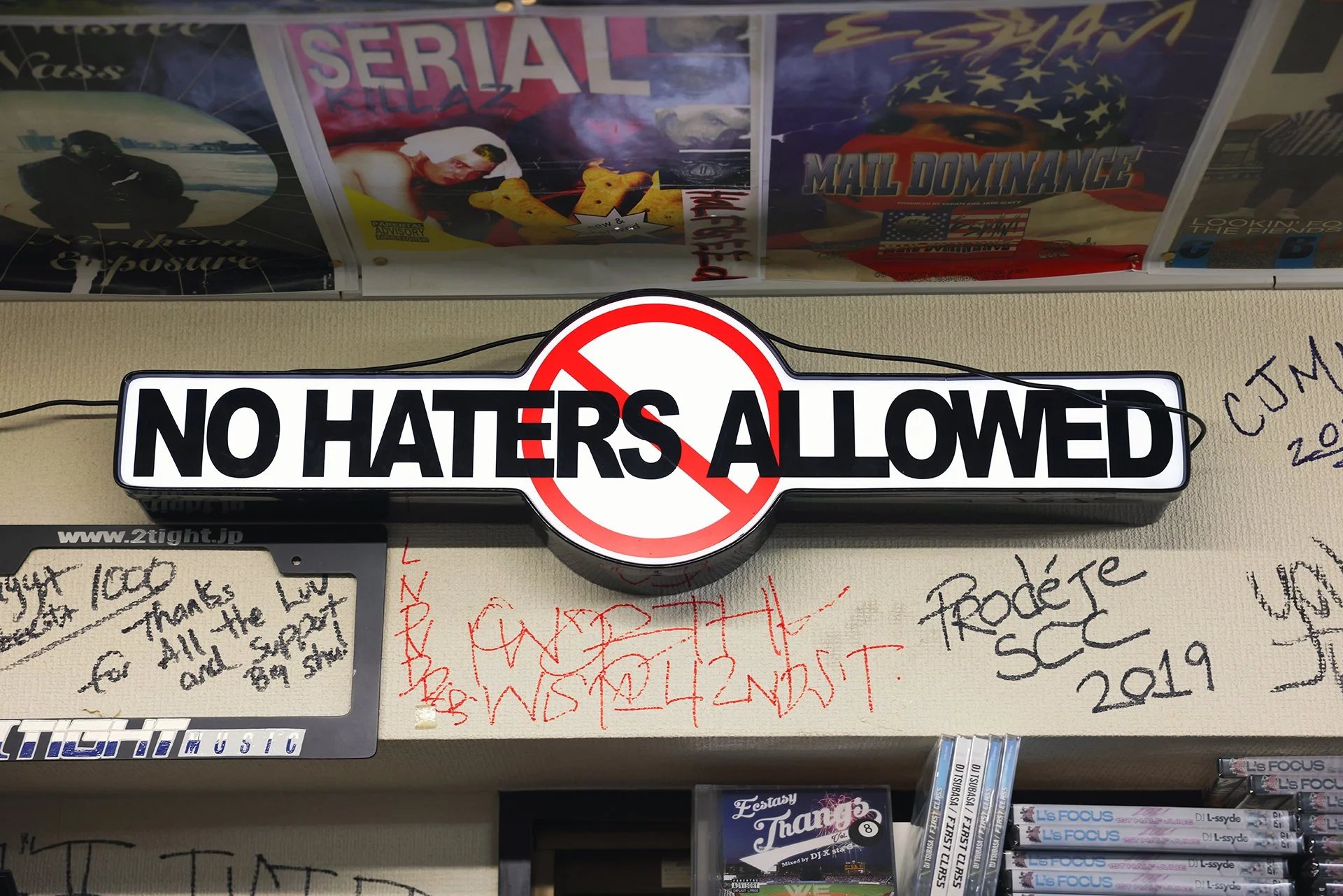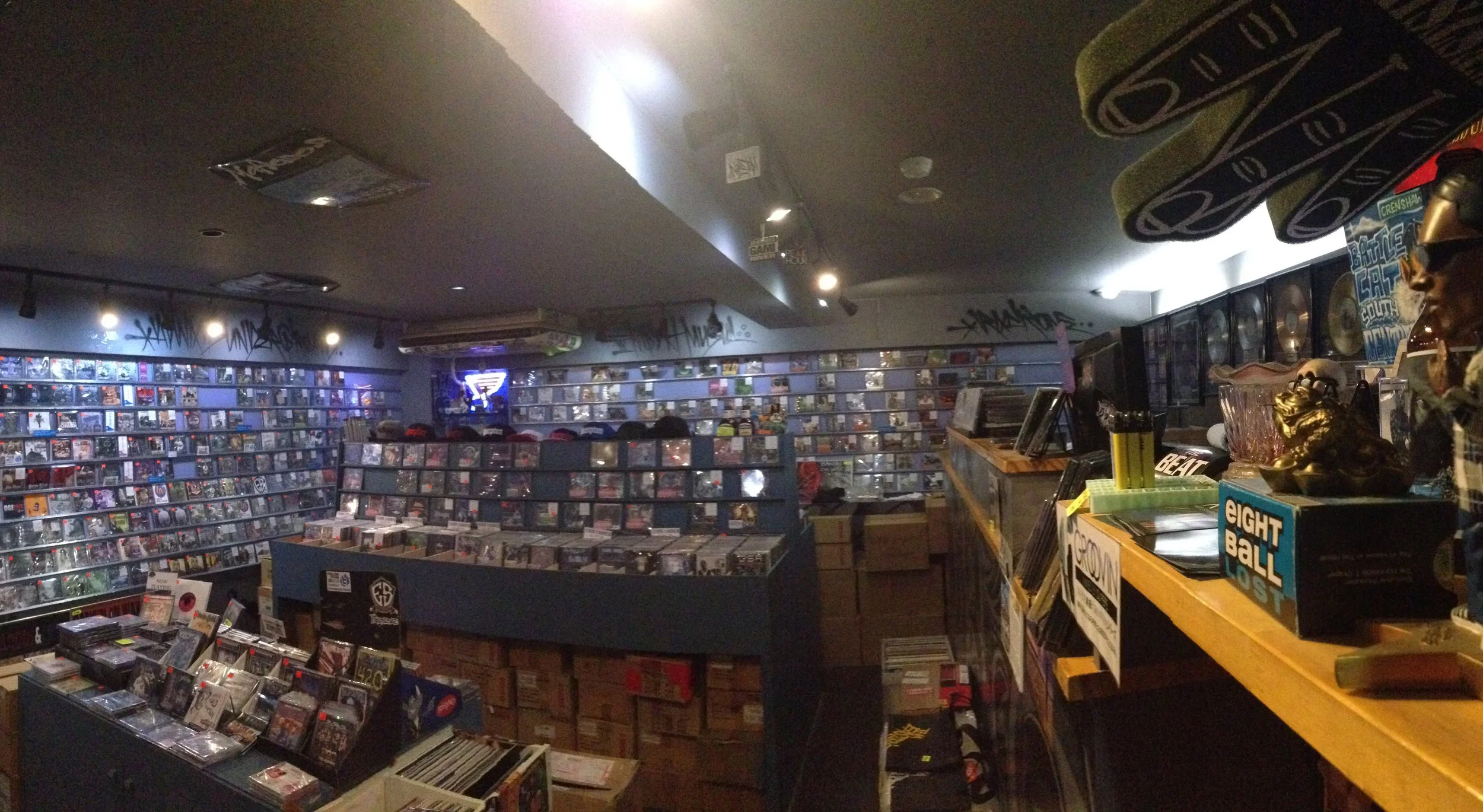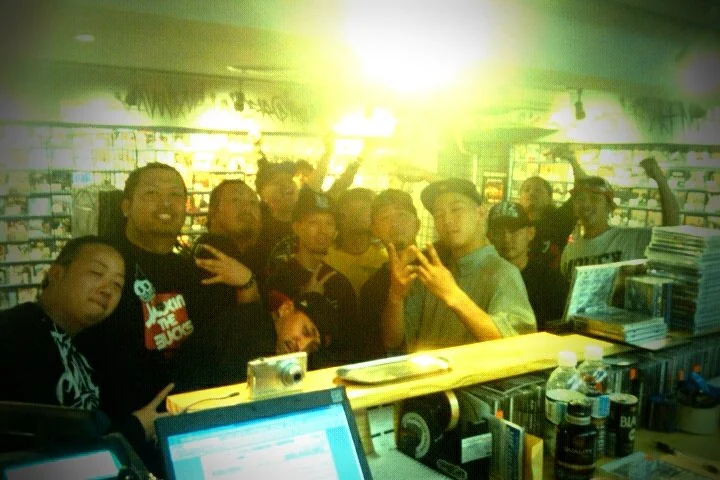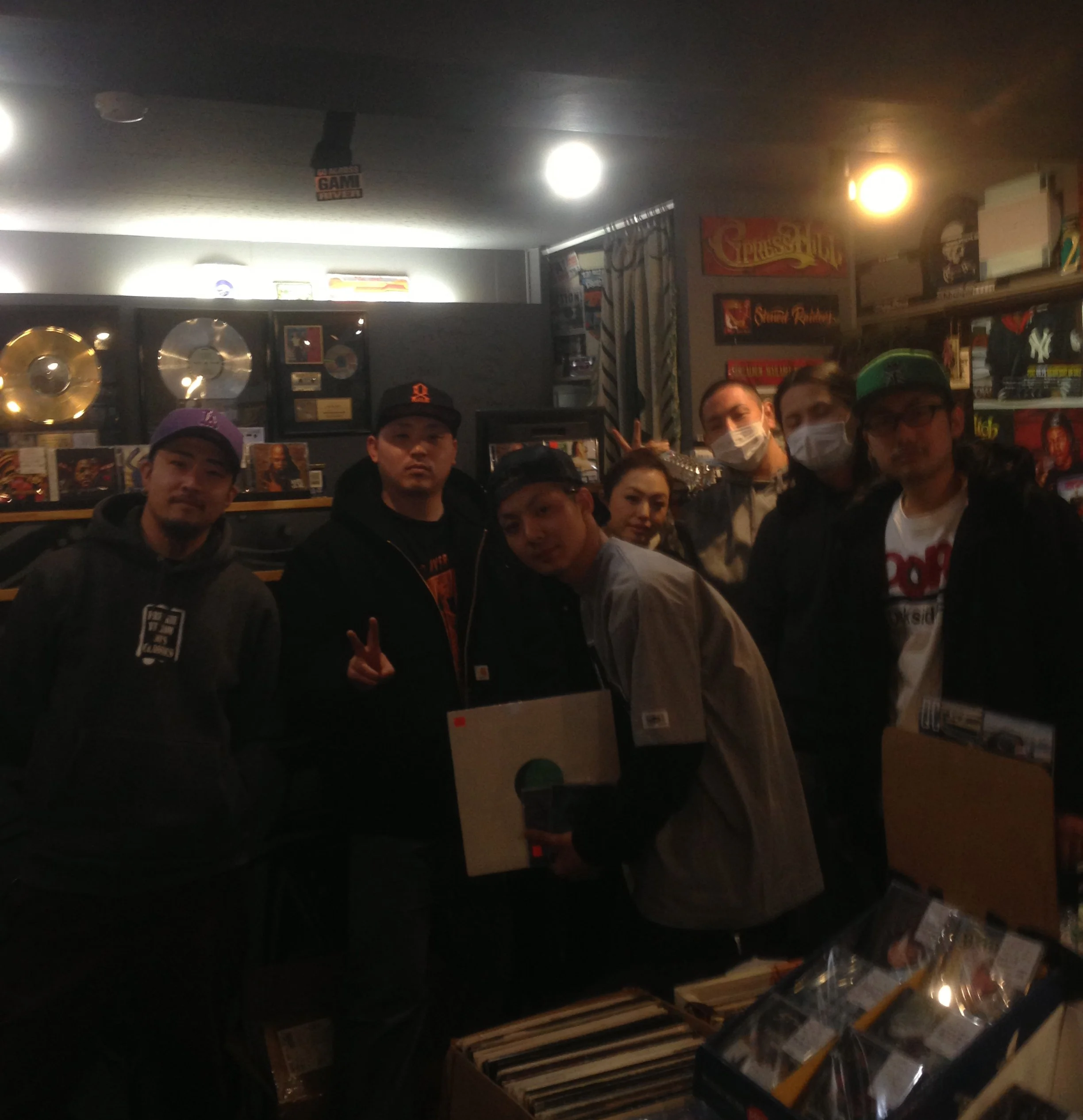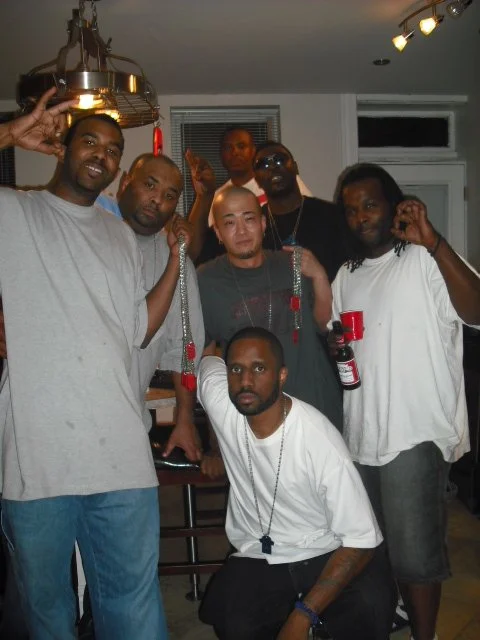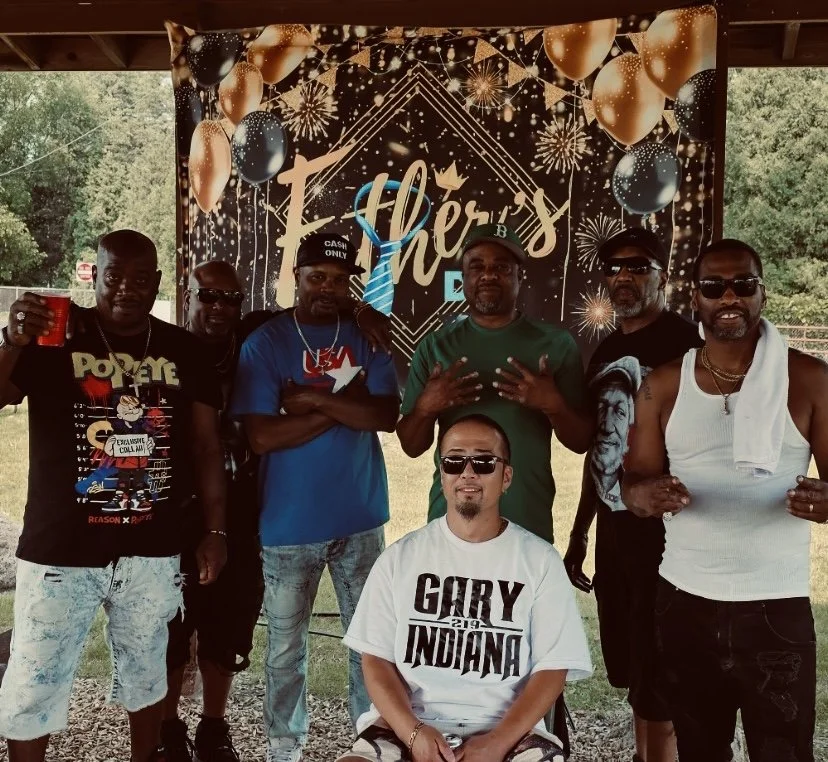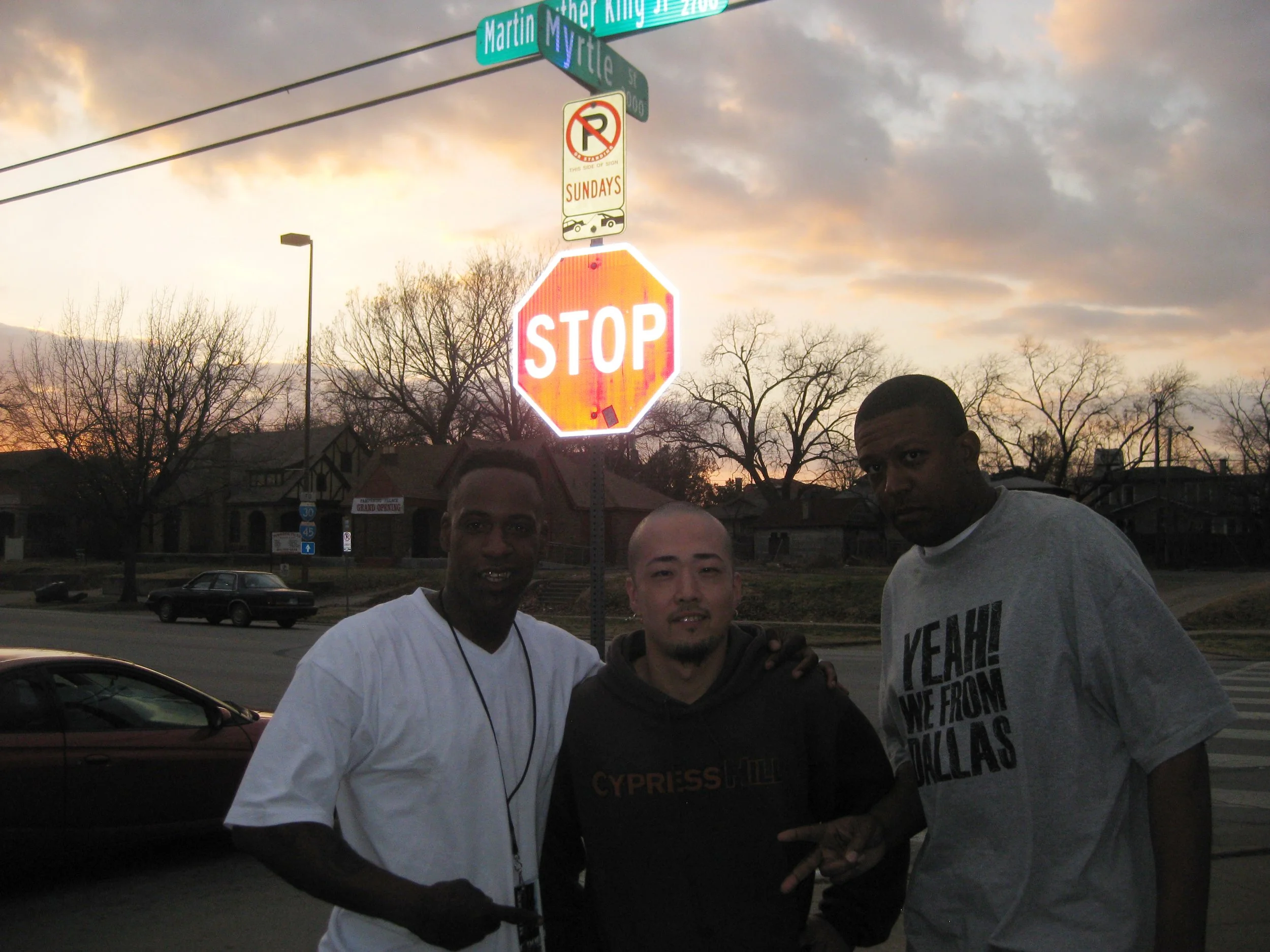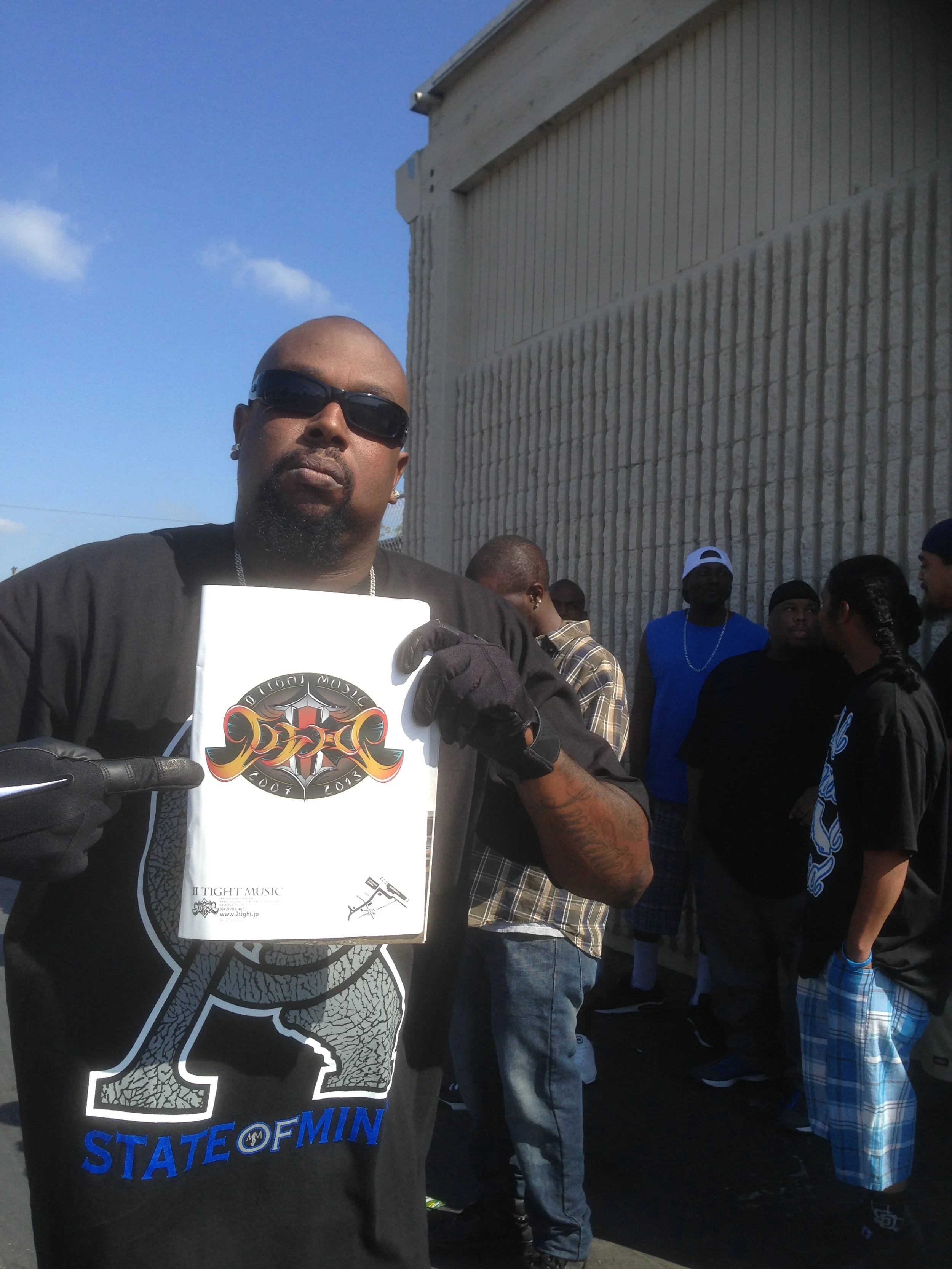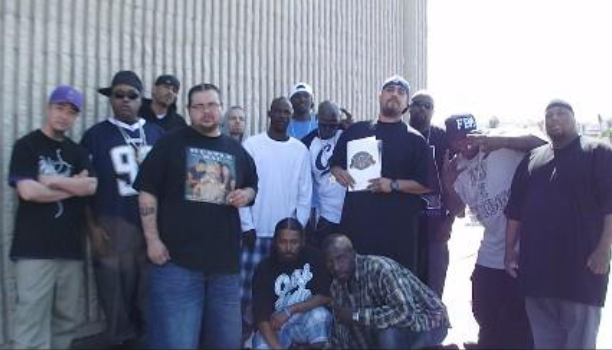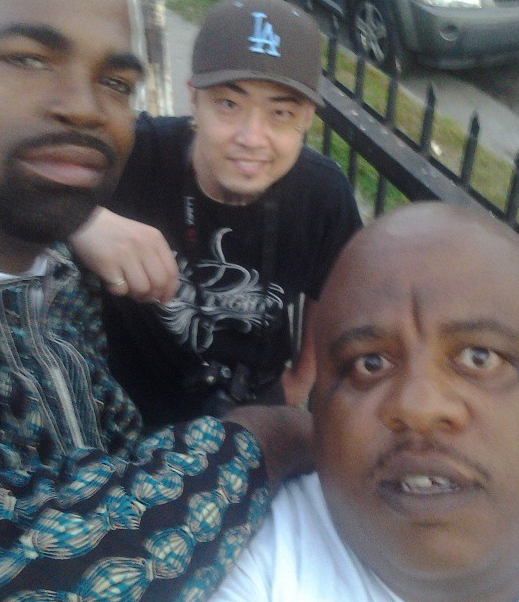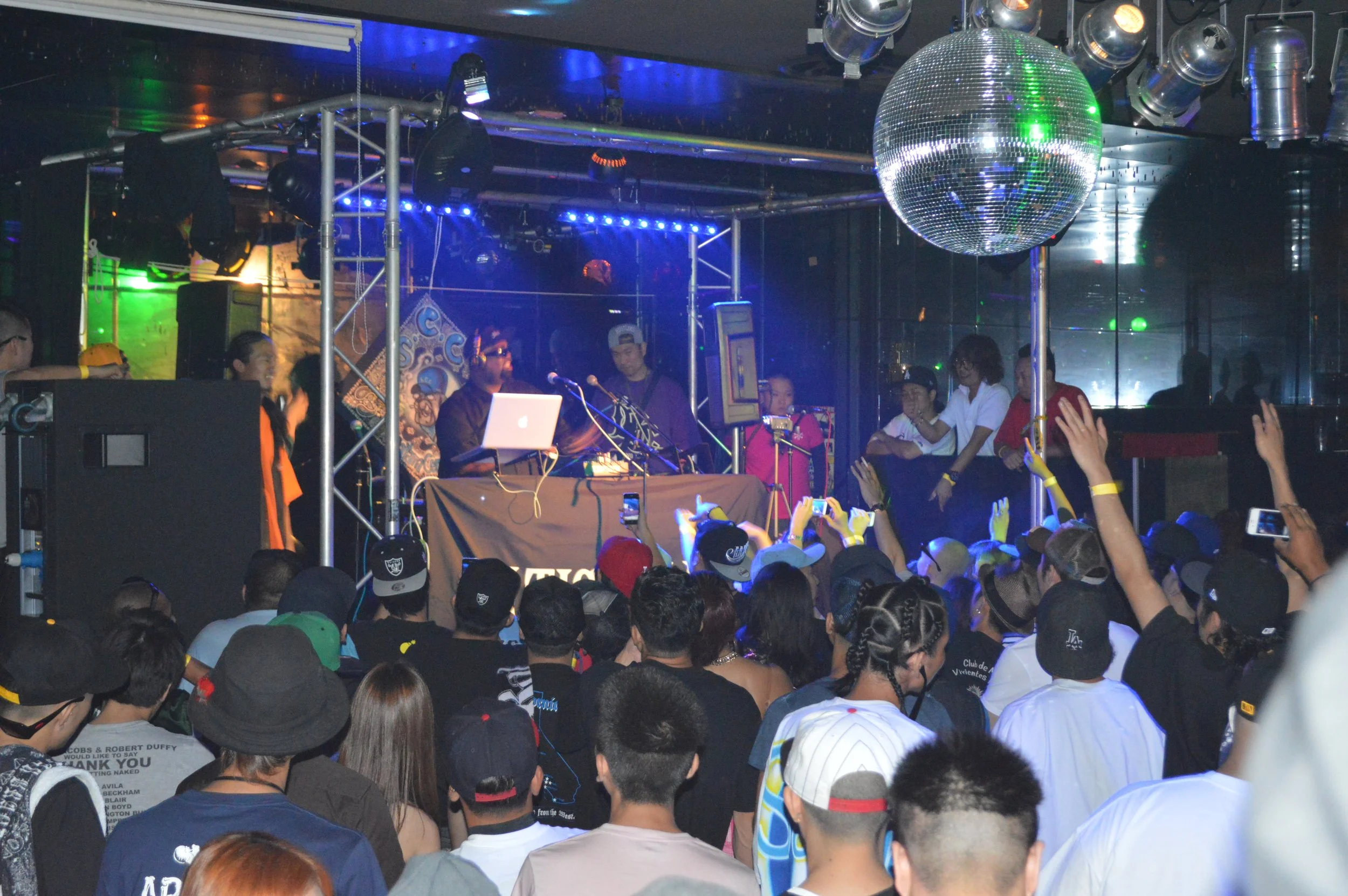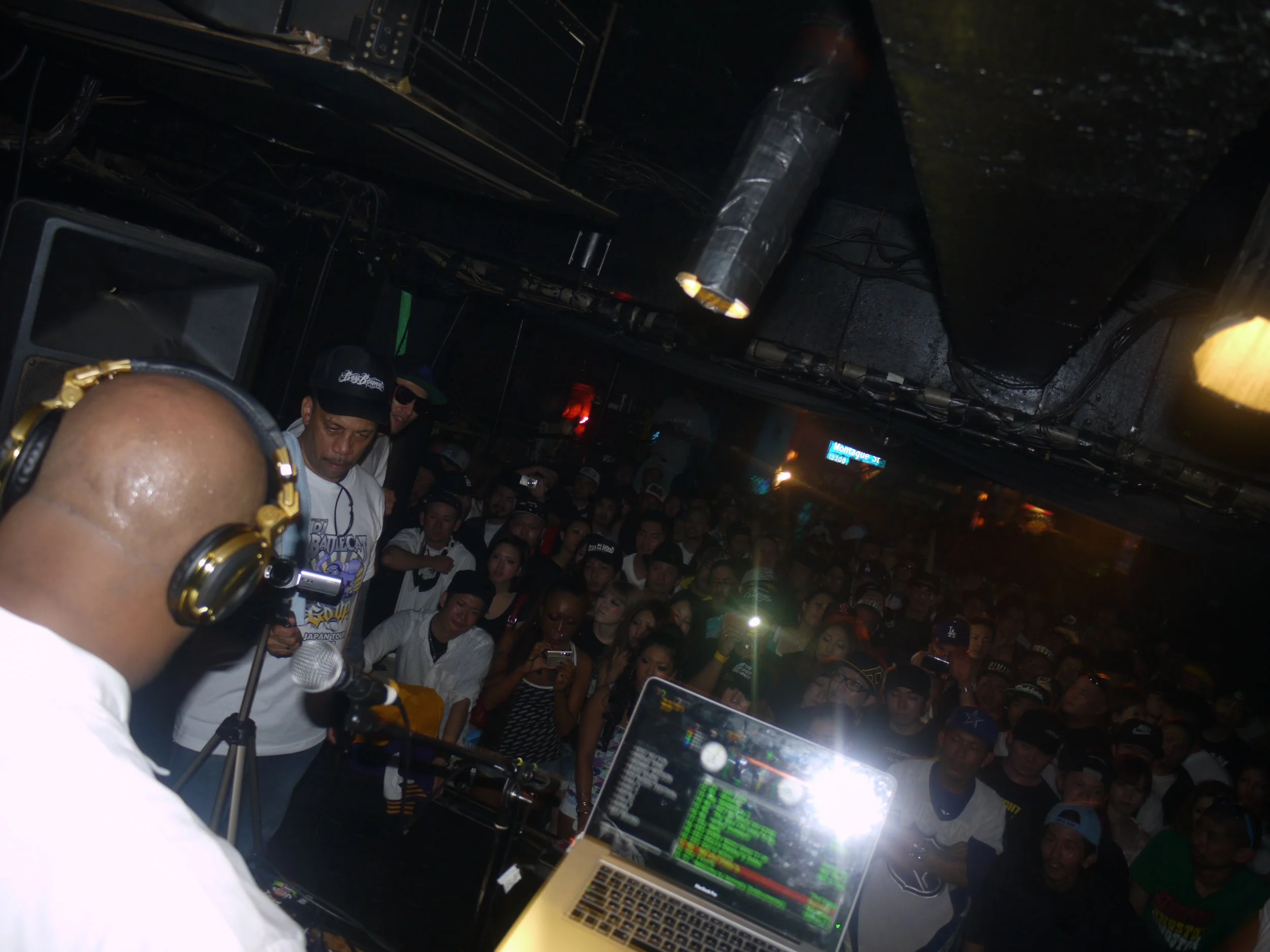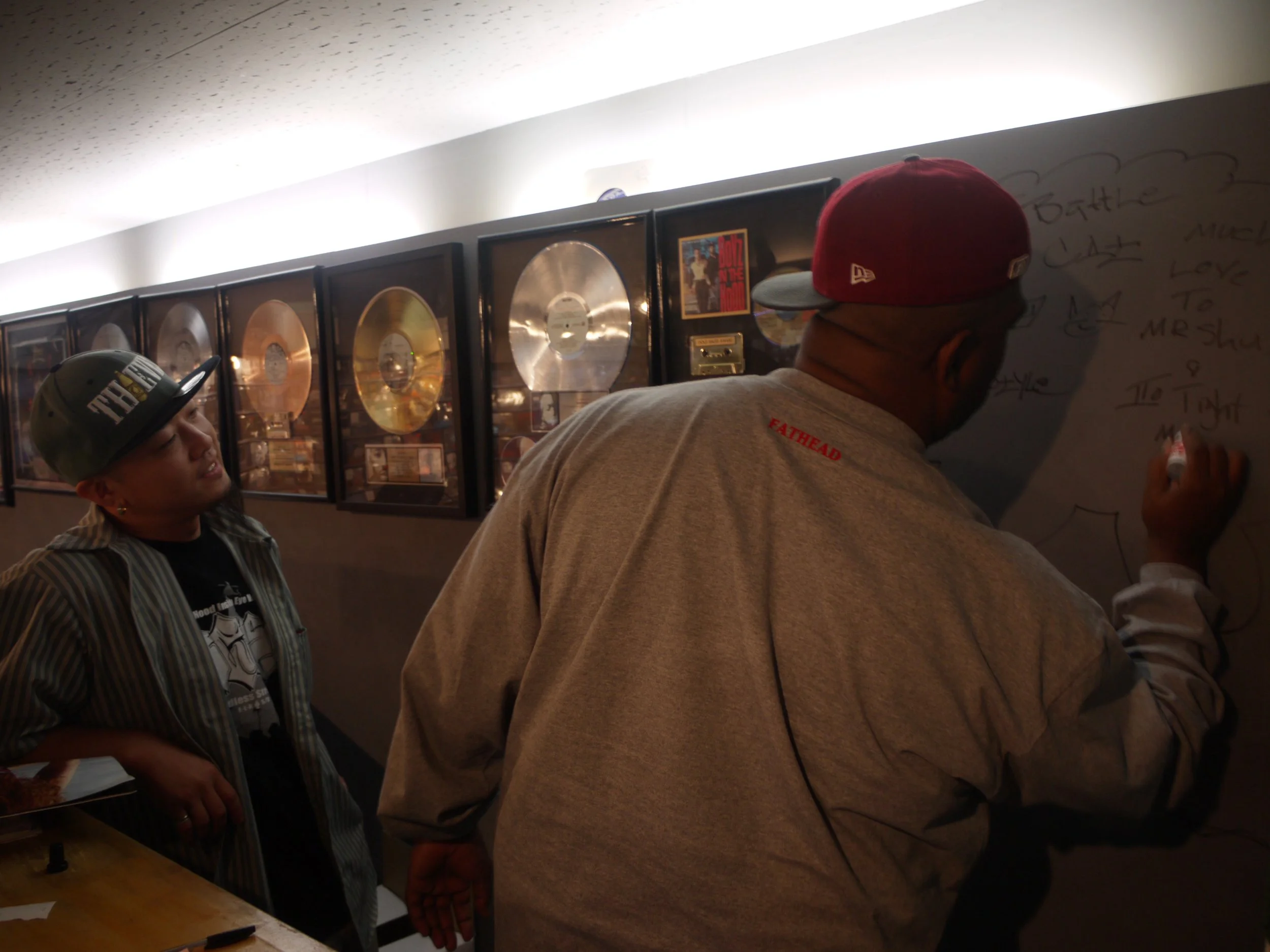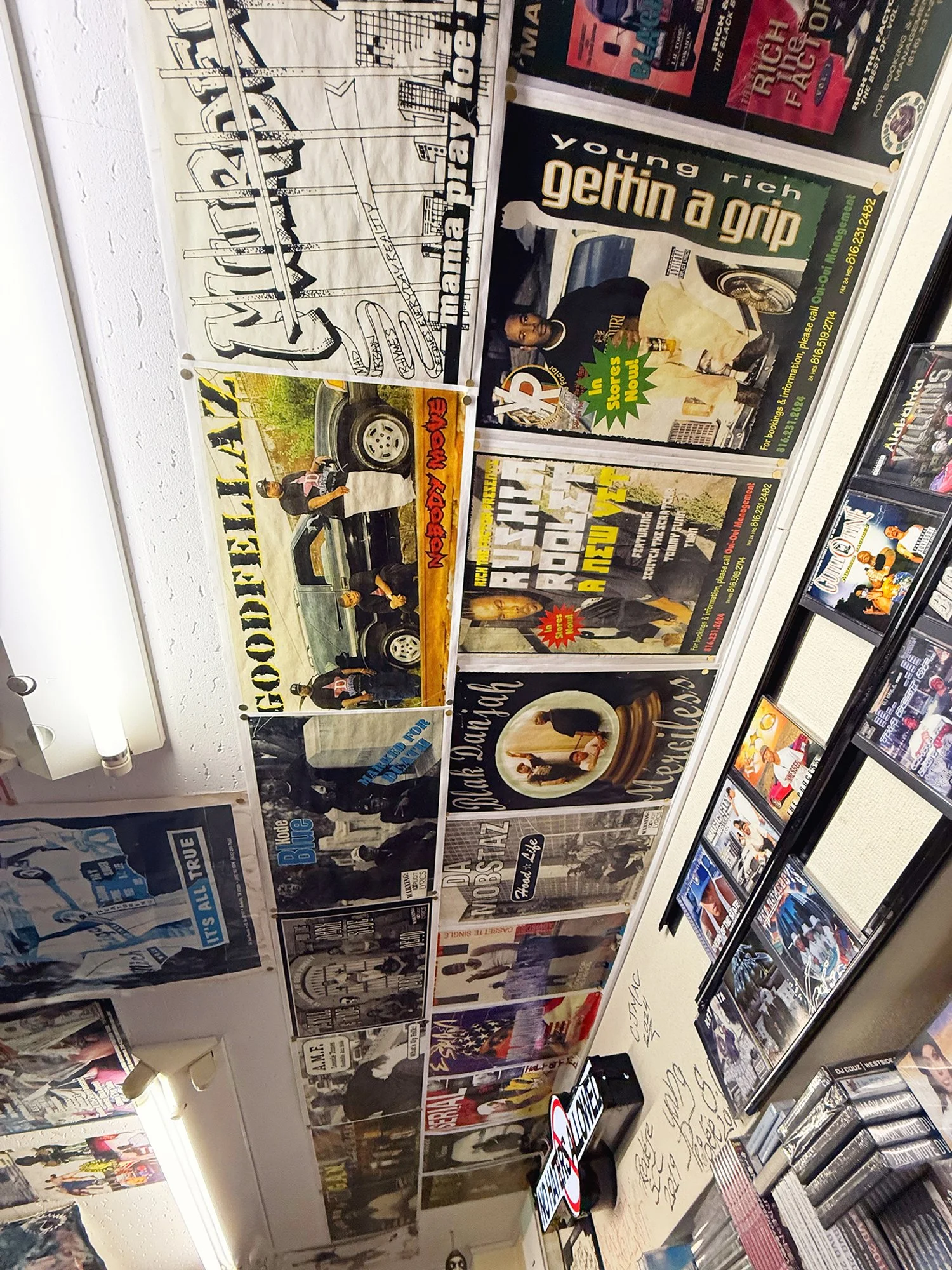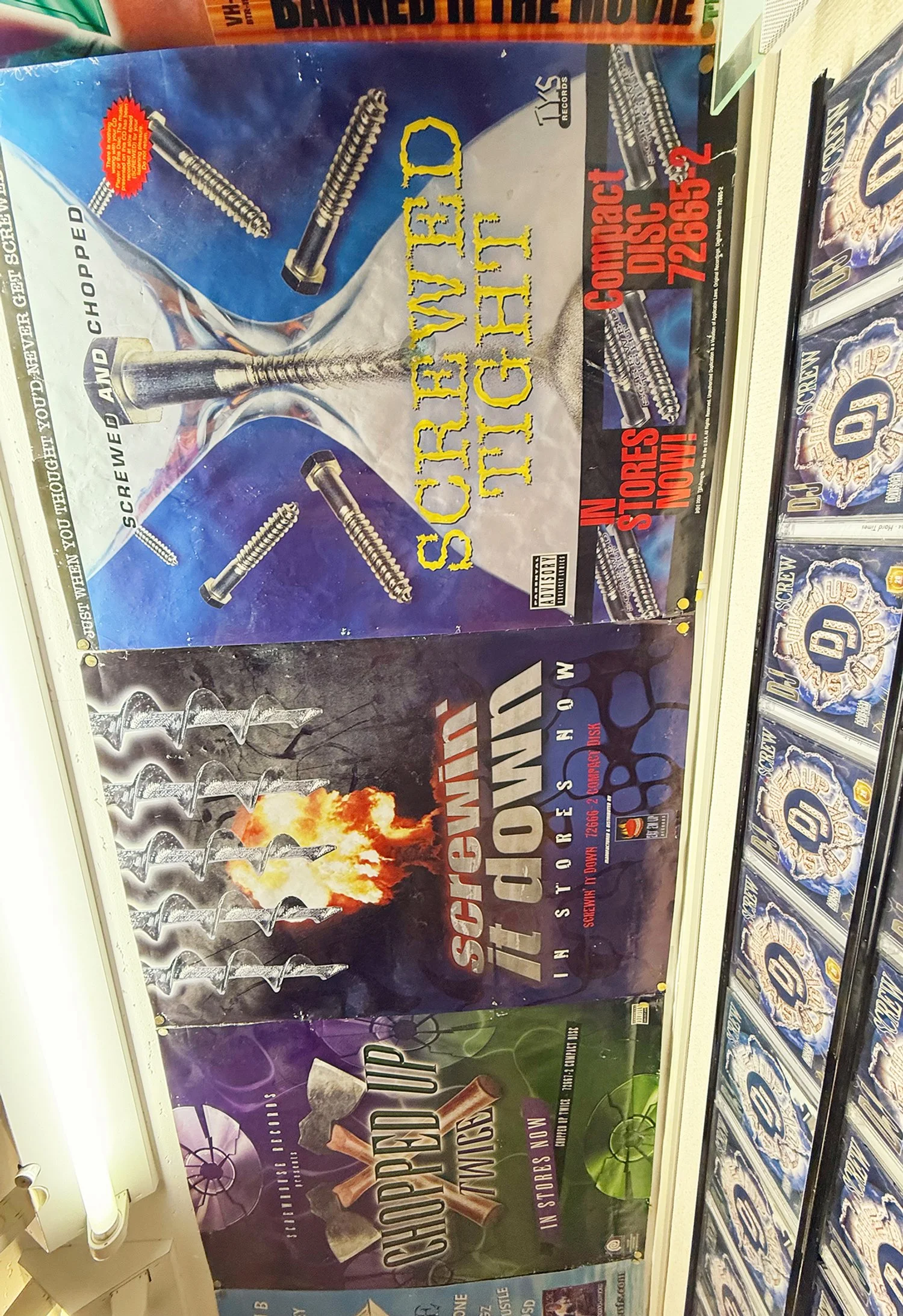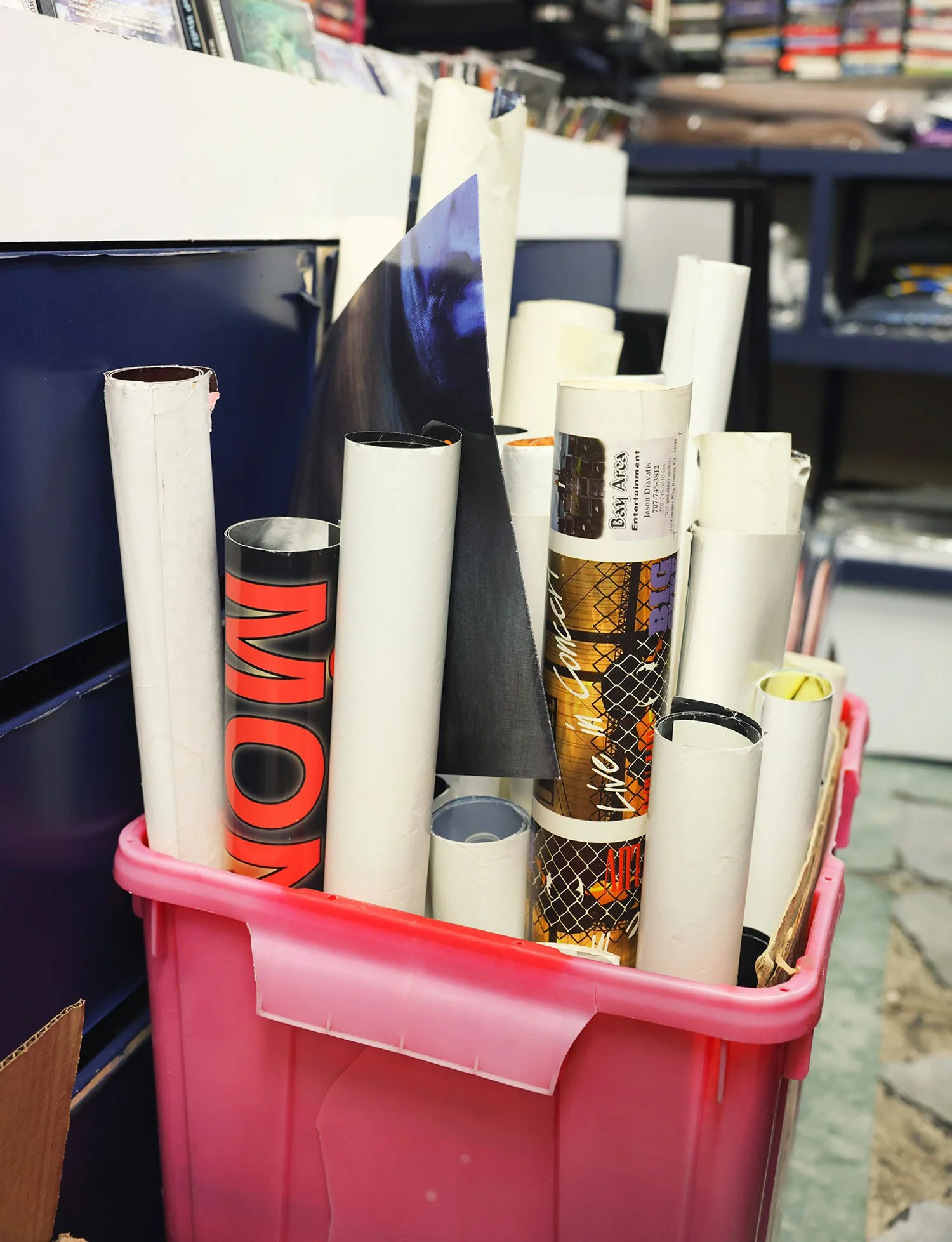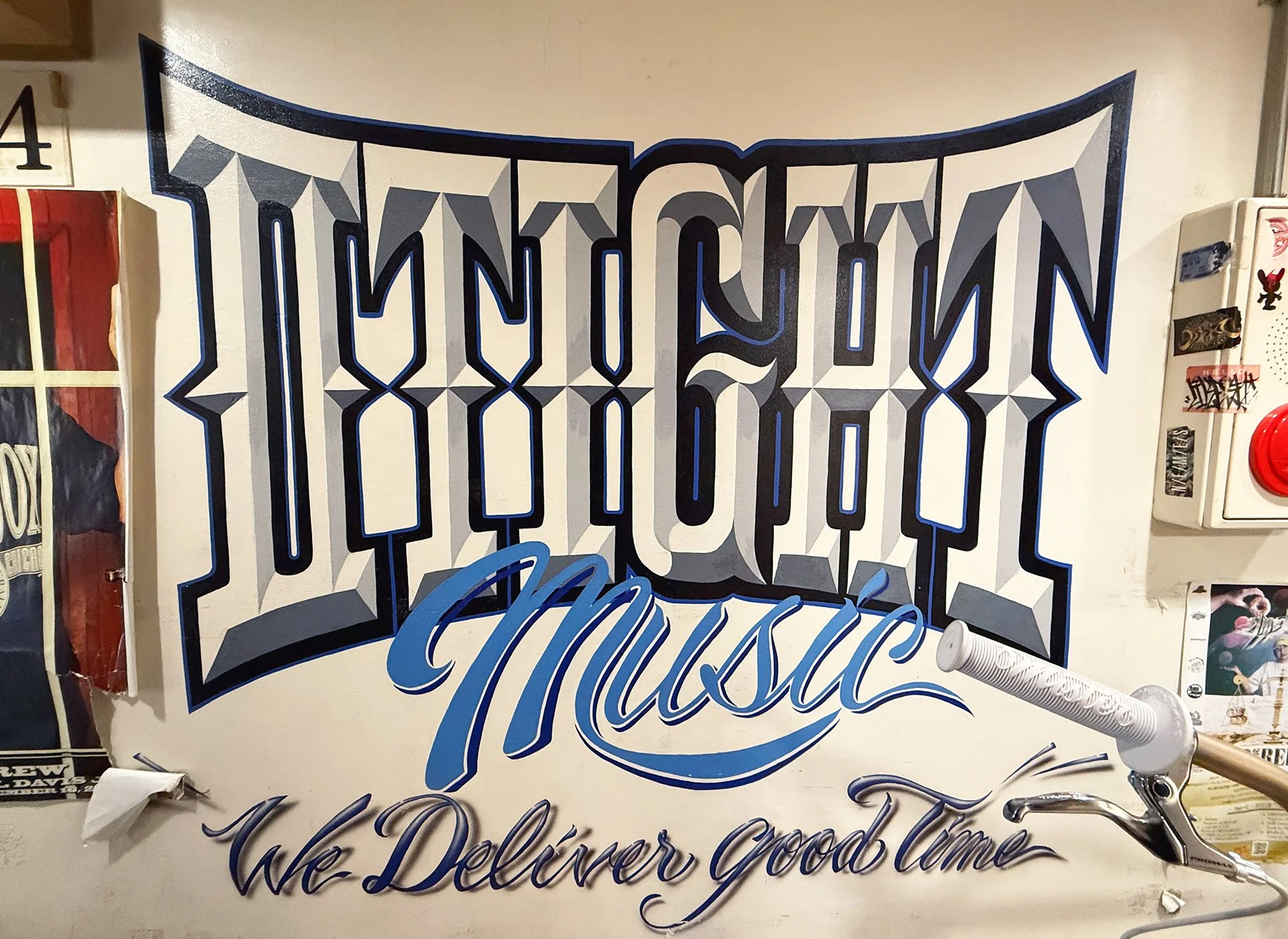
IITIGHT MUSIC
Opened: 2009
Business type: Record, tape, and CD shop
Area: Machida, Tokyo
Owner's motto: WE DELIVER GOOD TIME
Text & Photo: Atsuko Tanaka
Walking into IITIGHT MUSIC is like stepping into a treasure trove of hip-hop history. The sheer volume of rare tapes, CDs, and vinyl records lining the shelves is overwhelming. With over 700,000 records handled to date, the shop exudes an unmistakable passion for gangsta rap and G-funk—two genres deeply rooted in America’s local scenes.
At the heart of it all is Shu, a Yokohama-born music enthusiast who has dedicated his life to curating this extraordinary collection. His journey into hip-hop began in junior high school, when he first heard N.W.A and Public Enemy at a local community center. The raw energy of their music left a lasting impression, leading him to immerse himself in breakdancing. As he honed his skills, winning battle after battle, he set his sights on a dream: one day, he would go to America.
That dream became reality in 1997, when Shu made his first trip to Colorado, relying on the connection of a childhood friend. He continued dancing, despite being awed by the technical prowess of local b-boys. However, after experiencing injuries and facing the industry’s harsh realities, his focus gradually shifted to record digging. Every penny he earned went into expanding his collection.
Realizing it would be faster and more effective to source records directly from the U.S., Shu began making frequent trips in 2001. Since then, he has visited America over 100 times, relentlessly searching for undiscovered local rap gems. Even now, his hunt continues—always on the lookout for the next rare find that will keep IITIGHT MUSIC at the forefront of hip-hop preservation.
— You were deeply into dance when you were younger. What made you shift to record digging?
In 1997, I went to Colorado, and then in 2000, I visited Los Angeles. Seeing the incredible level of dancers there was a real shock. After returning to Japan, I kept dancing while working and even won battles. But injuries were frequent, and even when I won, there was no prize money or recognition. That forced me to rethink my path.
I had always loved music, so I naturally gravitated toward digging for records—the sounds that had fueled my passion all along. I was already spending a lot of money every month on records, so I figured, why not just go straight to the source? That’s when I started traveling to the U.S. in 2001 to buy records.
— Did you start selling the records and CDs you brought back right away?
Yeah. At first, I sold them at flea markets in parks, but most of my sales happened in family restaurant parking lots around Yokohama. I’d contact friends who were into that kind of music and sell directly to them.
— You officially opened this store in 2009. Were you always operating like that before?
Pretty much. In 2007, I launched an online store, but I had a strong desire to actually meet my customers, thank them in person, and share the experiences I had in the U.S.. So in 2009, I rented the space next to this shop—now my studio—and officially opened IITIGHT MUSIC.
— How has it been since opening the store?
I've met so many people. For example, one of the customers here today has been coming since the very beginning. Being able to talk face-to-face with people is something really important to me. Texting is efficient, sure, but it kills the vibe—it’s like the fire slowly goes out. I always feel like, Man, there’s so much more I want to say.
— What’s the concept behind your store?
It’s inspired by those Black-owned family-run CD shops that used to be all over the hoods in America. Unfortunately some them don’t exist anymore, but I remember seeing shops where the posters on the walls would tear over time, and locals would drop by to dig for music, drink beer, and just hang out. That kind of vibe isn’t something you can force—it just naturally comes together. But that’s what makes it so cool. It’s got that deep "umami"—a rich, unspoken flavor that lingers.
Watching those stores, I realized something: you can’t just sell what’s trendy or popular. If you’re running a shop like this, you need to be the kind of person that makes people think, Damn, this guy's got that umami. Otherwise, the store won’t have real soul.

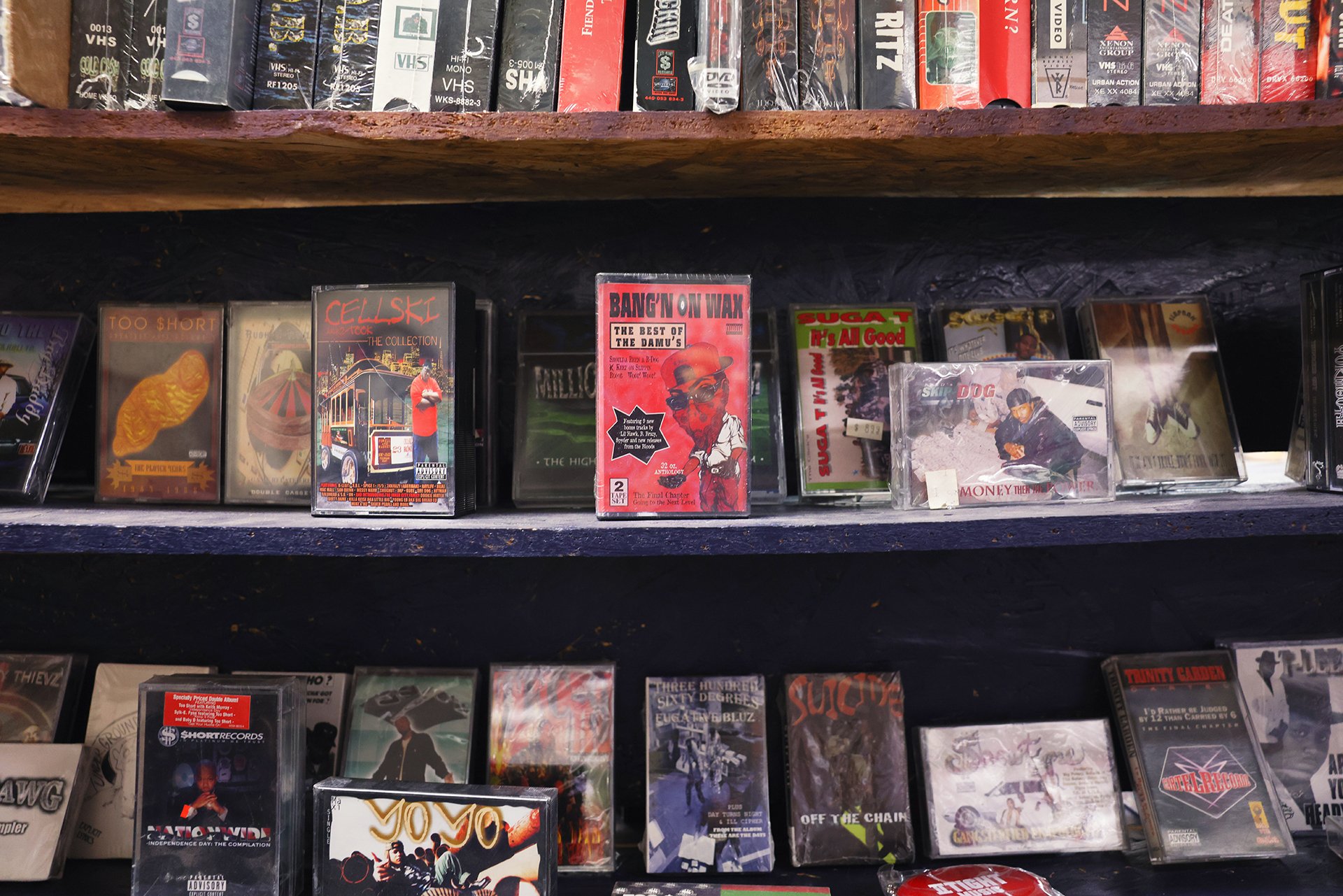
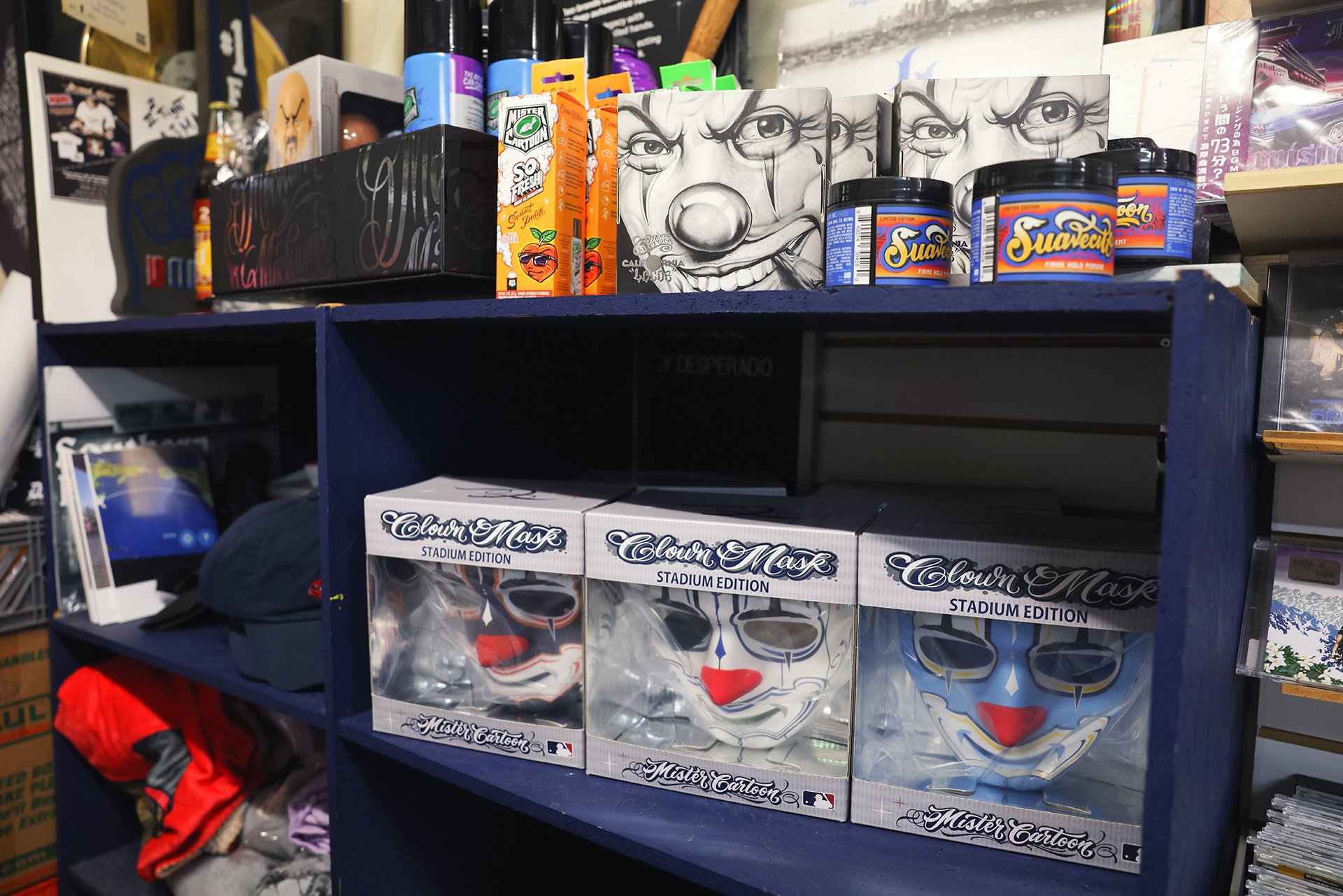
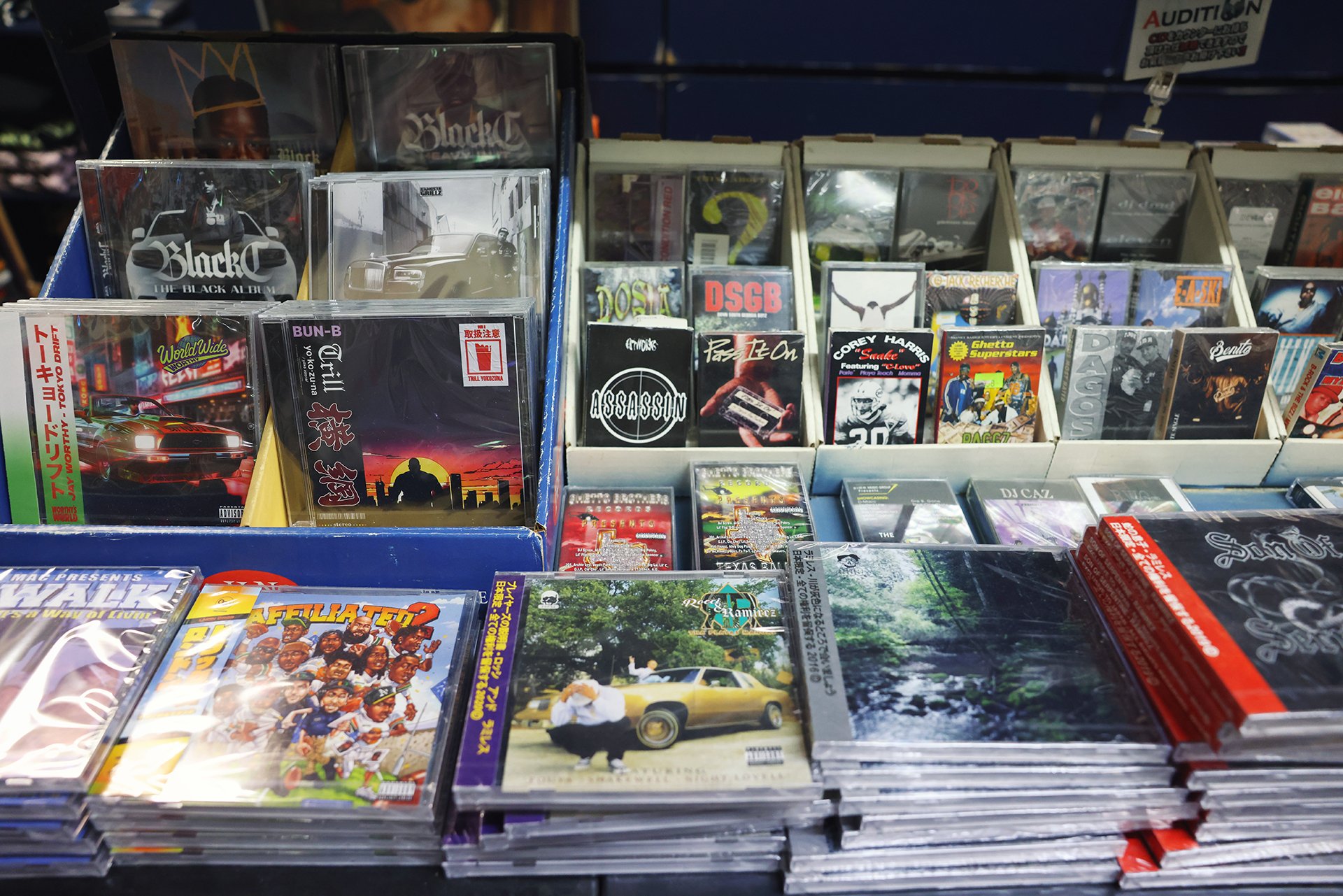


— That "umami" is everything! So, what are the most popular items at your store?
Gangsta rap and G-funk. People often ask me for recommendations, but it's tough to say. It’s like ramen—some people love shio (salt-based) ramen, while others prefer miso. So, I try to recommend something based on their personal taste.
— If you had to pick two records that mean the most to you, what would they be?
One would be Respect The Game - Boot Life by NHC, a group from Shreveport, Louisiana. Back in 2007, I traveled to Shreveport just to track down their music. I saw a poster of them at a local record store, so I asked the staff to let them know where I was staying. That night, the whole crew showed up at the hotel with stacks of CDs. I still keep in touch with them because I really want to bring them to Japan for a show. Sadly, one of the members who was the most excited about coming was shot and killed a few years ago. But their music is incredible, and I hope to make that show happen with the remaining members one day in Japan.
The second would be GANGSTA LIFE by a female rapper from Compton, California, also named GANGSTA LIFE. She’s a former gang member who’s lived a seriously tough life, but her work is highly respected. Some of her albums have sold for around $2,000 in private auctions. Since the secondhand market doesn’t benefit the artists, I reached out and told her, If you're interested in a reissue, I’ll make sure you get paid. She agreed, and we started working together to re-release and spread her music. I also told her, I don’t know how you feel about your own work, but the fact that I’m here with you right now proves how incredible your art is. She broke down in tears. That moment really hit me.
— I heard that when you go record digging in the U.S., you rent a car and drive solo across the country. It sounds exciting, but isn't it dangerous? Have you ever had any close calls?
Yeah, it’s tough, but everything I see along the way is new to me, and I learn so much. The excitement outweighs the exhaustion, and I feel incredibly lucky to experience it. That being said, I go to places where even former gang members have told me "Do NOT go there." So, yeah, from an outsider’s perspective, I’ve probably been in some dangerous situations. But you know, the greatest art often comes from people who take risks. I could just buy music online and sell it, but by actually traveling there myself, I can share what I’ve seen and felt with my customers in Japan. And if that sparks even a little interest in this world, then it’s all worth it.
-What has been the most memorable event at your store so far?
For me, it’s always the customers. I’m incredibly grateful they take the time to visit the store. Even though I’m expanding my horizons, it’s their reactions that truly move me. Another memorable moment is when the artists from the states I’ve organized come to Japan. It’s exciting to see them creating music in my studio, and they get so excited when I show them my collection of the products I have at the store.
-How did you start organizing the shows?
When you meet and talk with the artists, they often say, "Take me to Japan" After hearing that many times, I started to feel the desire to bring them over. The music they create is their soul, and my role is to share it with people who will appreciate it. I’m especially thrilled by the idea of bringing two passionate individuals together—it feels like the ultimate experience.
-What are some memorable or happy moments from the shows you’ve organized so far?
It’s always emotional when the artist I’ve listened to thousands of times comes to an event I’ve organized. Seeing them performing and watching the audience’s excitement is thrilling. One of the most memorable moments was when Battlecat came to Japan. He’s also a DJ, but not widely known here. I proposed him holding an event where he’d play the classics he produced, and he agreed. I was anxious, wondering if he’d actually come, but he did. The audience was so moved by his show that some of them cried, and I couldn’t help but shed a few tears too. Later, at the hotel, he told me, "You really love music". It was a moment that made me realize that when you’re open and fully committed, that passion will come back to you.
-That's so cool! What advice would you give to someone who wants to open a store like yours or do what you do?
The most important thing is to stay true to your feelings. There will always be times when you want to do something, but life gets in the way. Even if you can’t completely change your job right away, take small steps. Wake up two hours earlier to do what you’re passionate about. With time, it may grow. The key is to be honest with yourself and follow your heart.
-What are your prospects for the future, and what new challenges would you like to try?
Last year, I got involved in importing and selling Mr. Cartoon bicycles, and I hope to expand that business in the future. Also, I used to host events at a club called THE BRIDGE in Yokohama for over 20 years, but it closed last year. Moving forward, I’d like to host peaceful, healthy events outdoors during the daytime, gathering cars, bicycles, and rebellious art, and of course, playing lots of music.
Another project I’m passionate about is collecting flyers, stickers, and posters that I think are cultural heritage-level. While A-list art is impressive, I feel a deeper connection to B, C, and D-grade art. The people who create those works often don’t know how to sell them or even try to, but their rawness conveys their humanity. I want to buy as many of those items left in America as I can. I’m thinking of renting a large warehouse in Odawara’s countryside and holding a rural pop-up event.
-It sounds like an incredible exhibition! I hope it happens soon. Now, can you tell us about the area around your store?
It’s just a 2-minute walk from JR Machida Station, but in the past, this area was a red-light district with many offices and streetwalkers. It’s much more peaceful now.
-Finally, do you have a message for customers thinking of visiting your store for the first time?
I’ve traveled all over America, collecting records, CDs, and tapes to preserve cultural heritage. Feel free to drop by and check out our collection.
IITIGHT MUSIC
Addres: 402 Machida Nichijun Building, 3-10-7 Kamitsuruma Honmachi, Minami-ku, Sagamihara-shi, Kanagawa
Phone: (042)705-4057
Business hour: closed day: Thursday
Website: https://www.2tight.jp/
Instagram: @mcd
